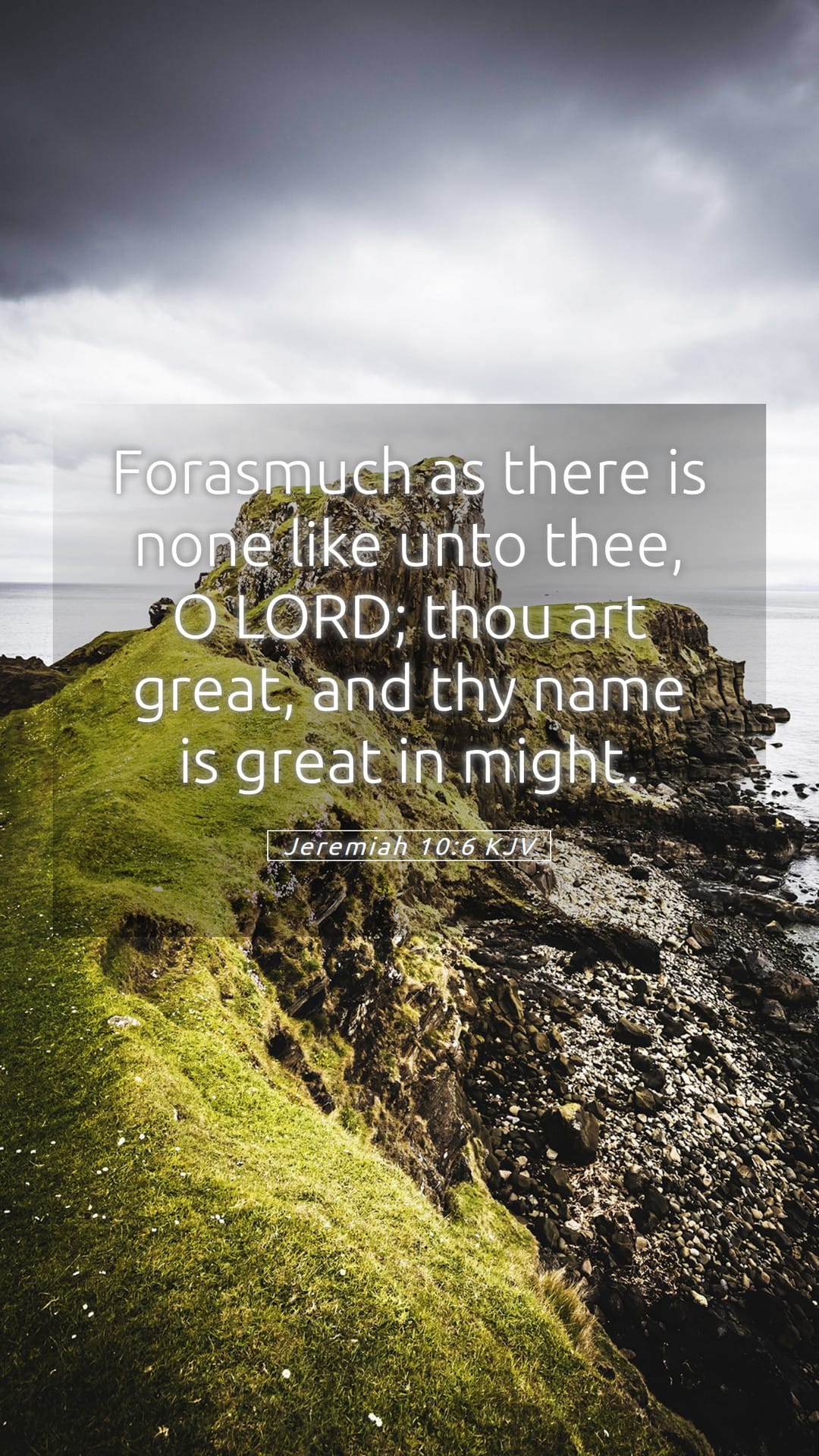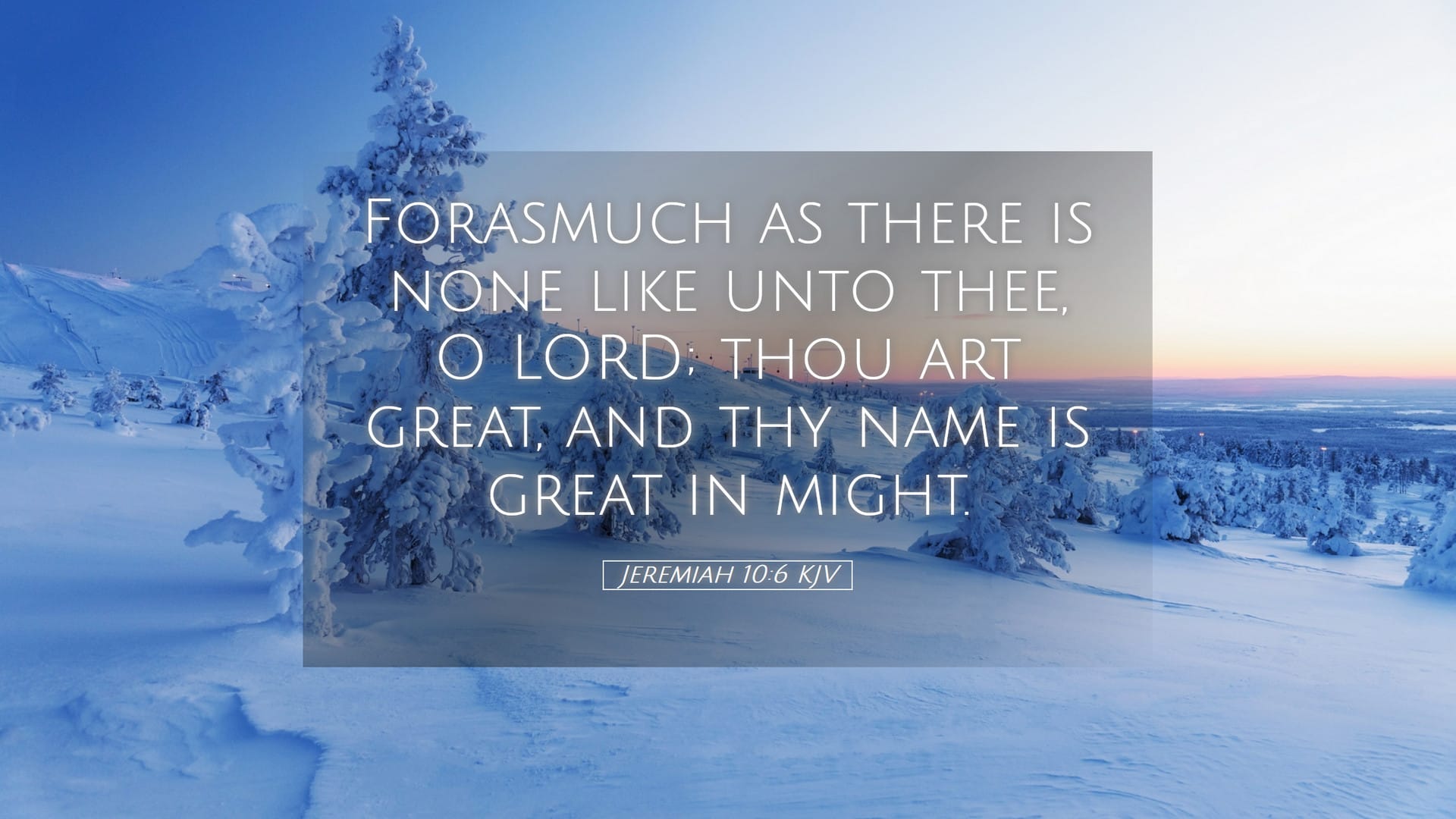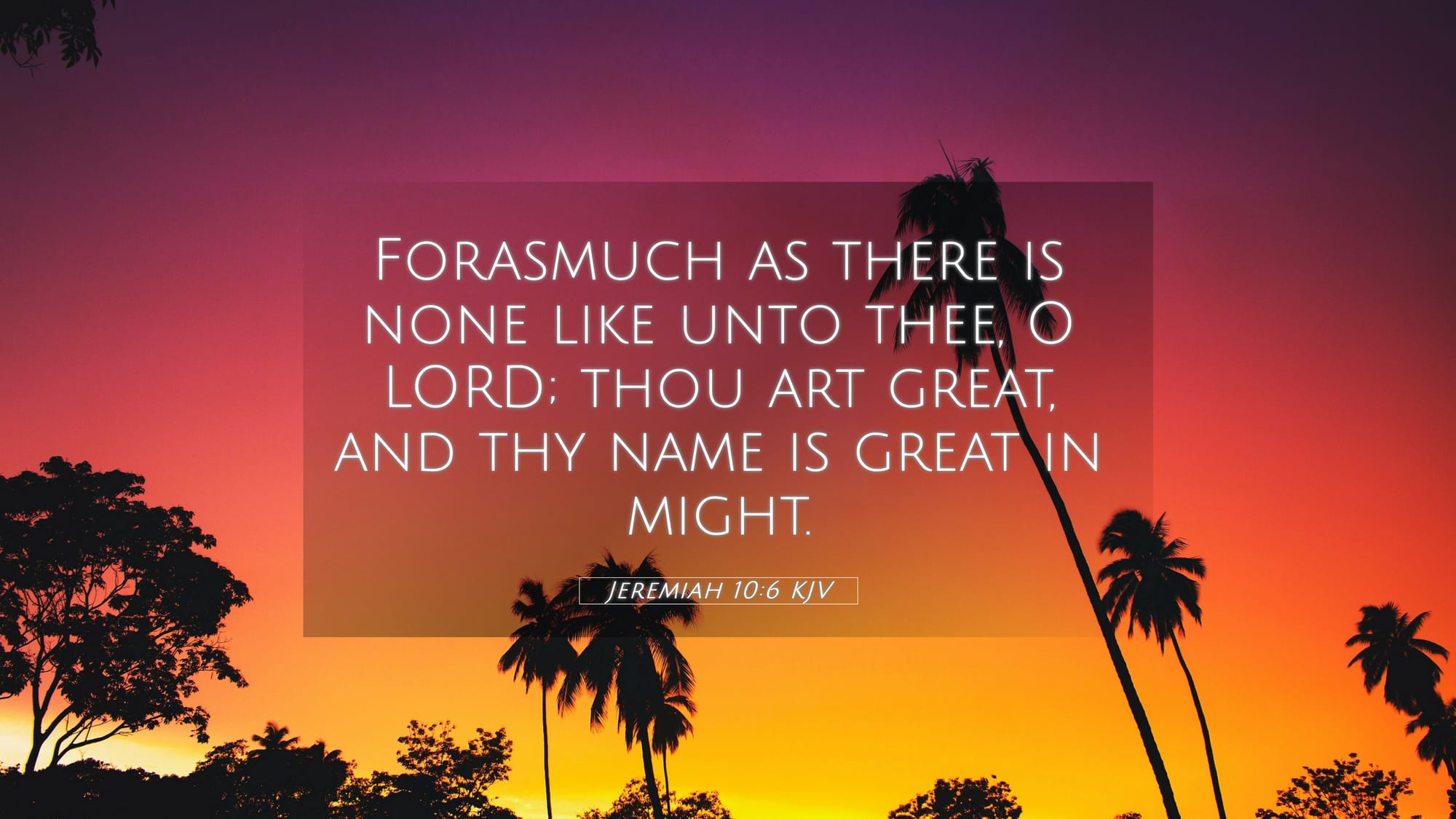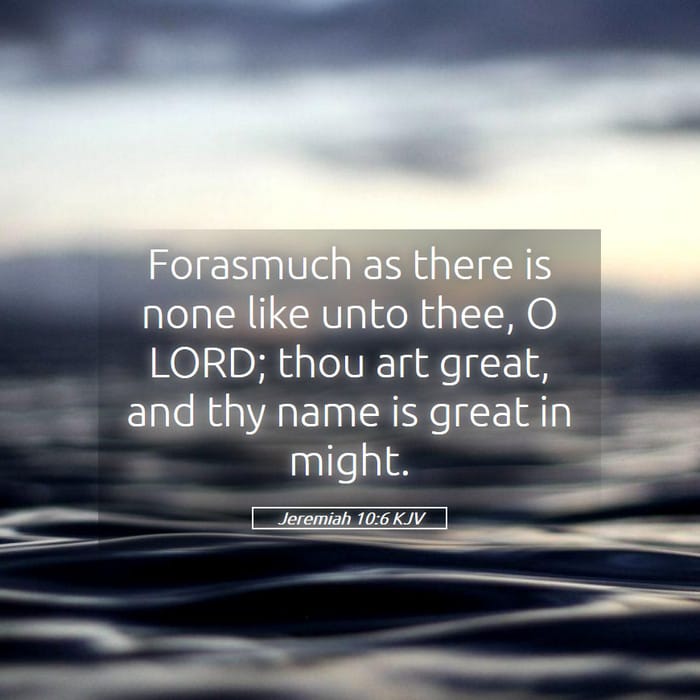The Name Above All Names: Exploring the Power of God in Jeremiah 10:6
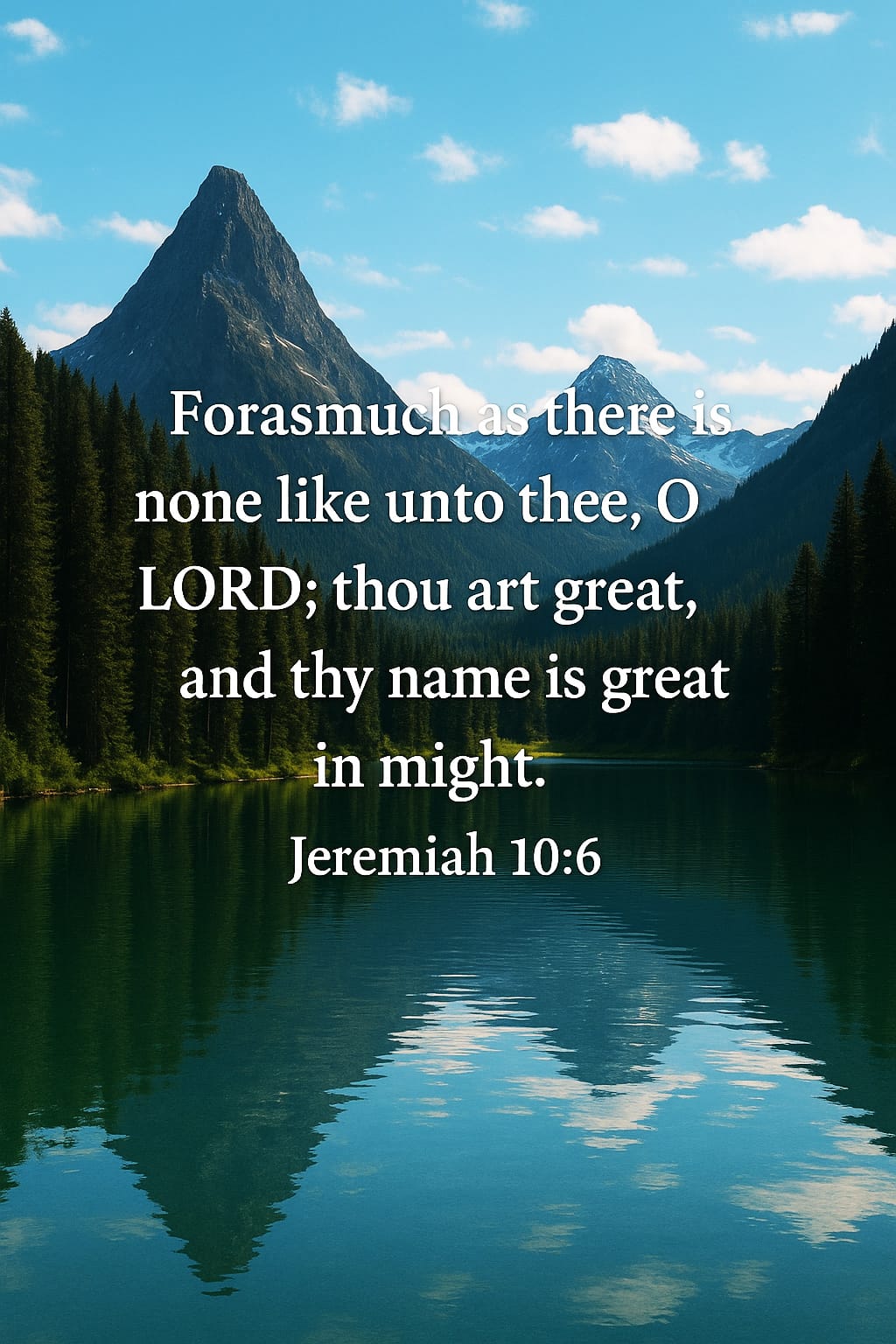
Jeremiah 10:6
“Forasmuch as there is none like unto thee, O Lord; thou art great, and thy name is great in might.” KJV
1. Literary and Immediate Context
Jeremiah 10 is a chapter where the prophet contrasts the living God of Israel with the idols of the nations. It belongs to a larger prophetic section warning Judah about the coming judgment due to idolatry.
- Verses 1–5 describe the futility of idols — man-made, powerless, and dependent on human crafting.
- Verse 6 functions as a doxological praise interrupting the prophetic warning, proclaiming the uniqueness and power of God.
- The following verses (7–10) continue this contrast, reinforcing God's sovereignty over all creation.
2. Hebrew Word Study
- “There is no one like you” – ‘eyn kamocha:
- A phrase of absolute uniqueness, used often in Scripture to declare God’s incomparable nature (cf. Exodus 15:11, Psalm 86:8).
- “Great” – gadol:
- Denotes majesty, might, and importance; often used to reflect God's cosmic authority (Deut. 10:17).
- “Name” – shem:
- Not just a label, but a representation of God's character, essence, reputation.
- “Full of power” – gibbor (or a variation depending on the manuscript tradition):
- Refers to mighty acts, strength, often in battle contexts (cf. Isaiah 9:6 – “Mighty God”).
This verse emphasizes both God's transcendent nature and His immanent power in history and human affairs.
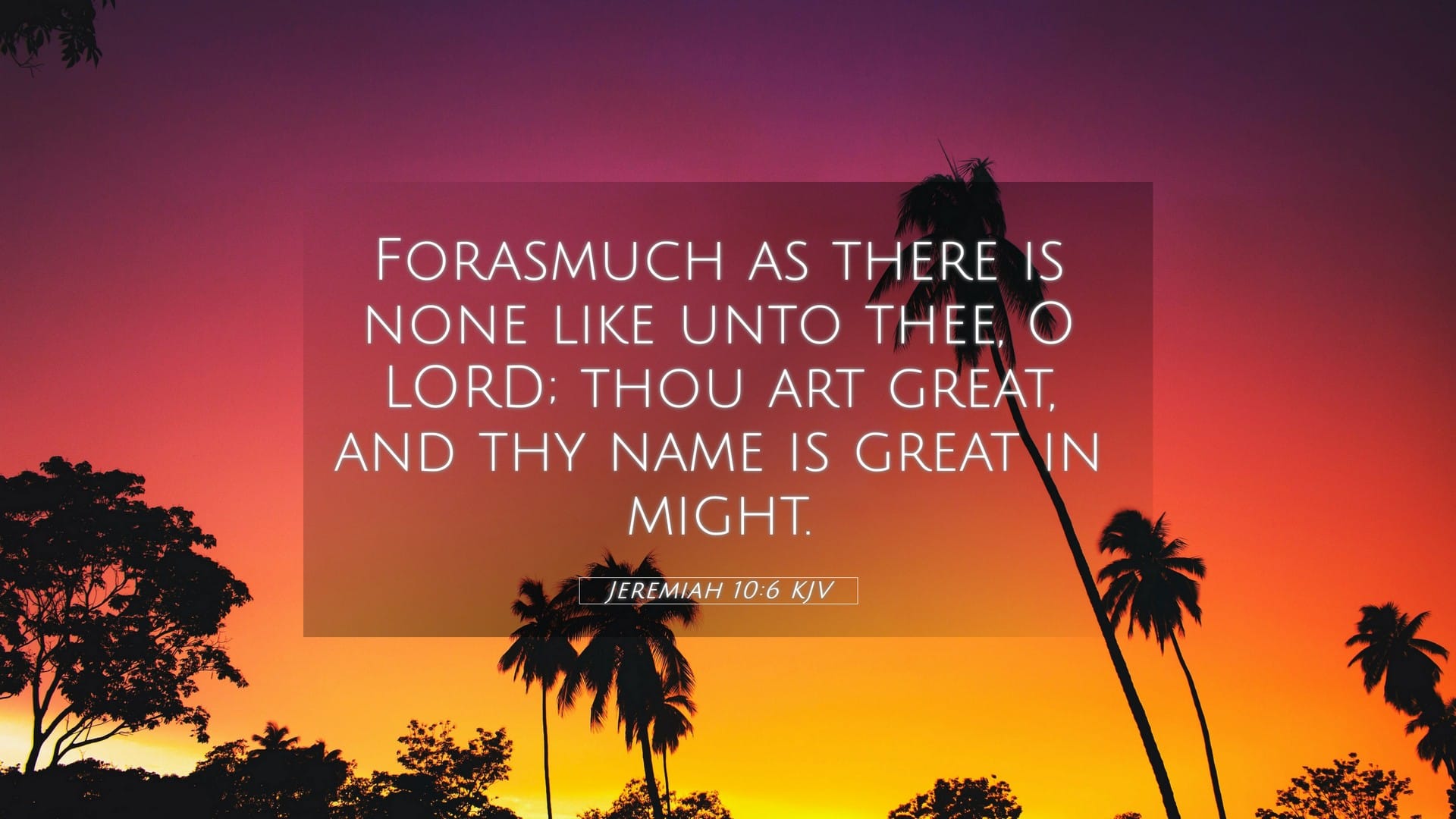
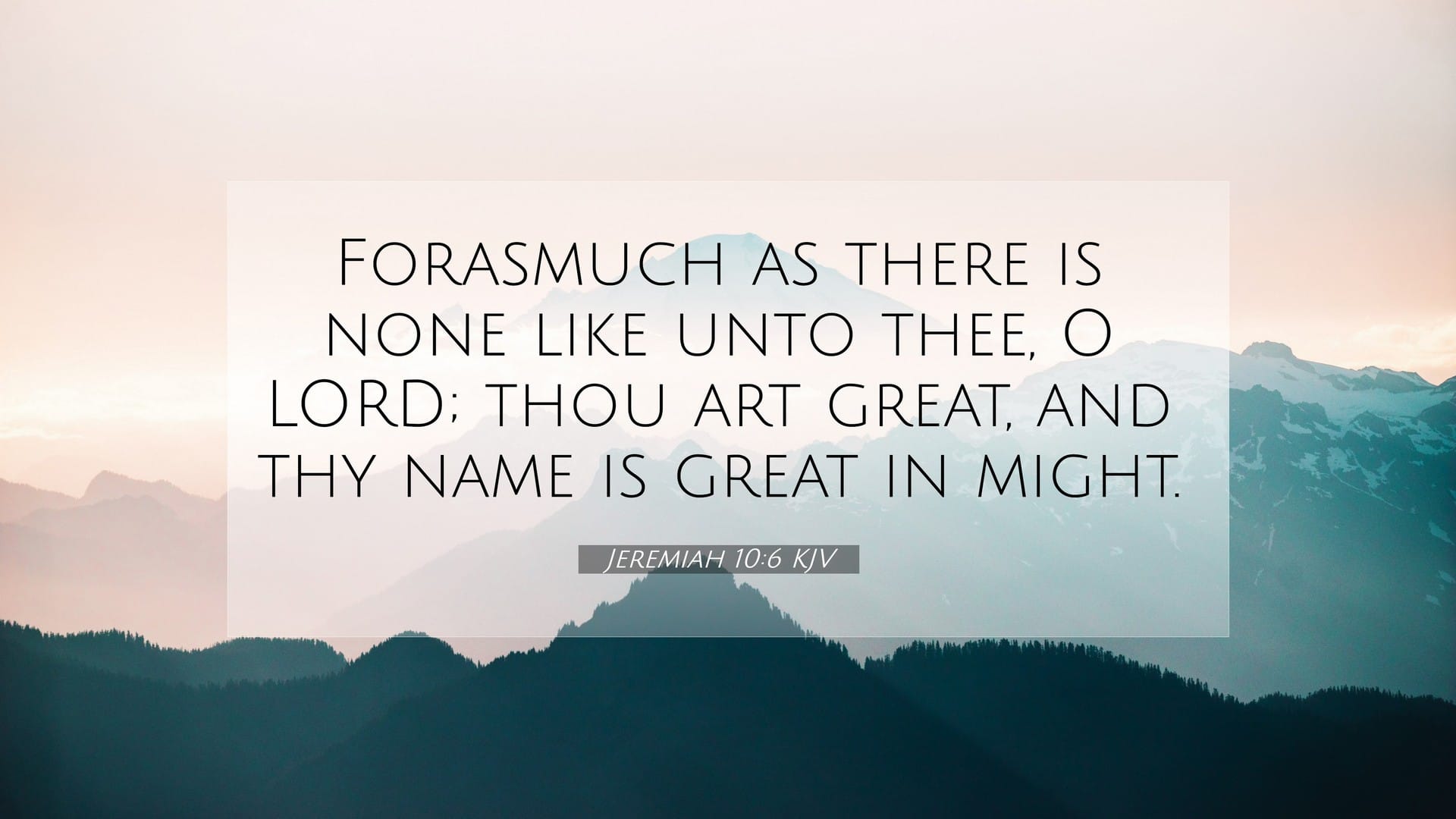
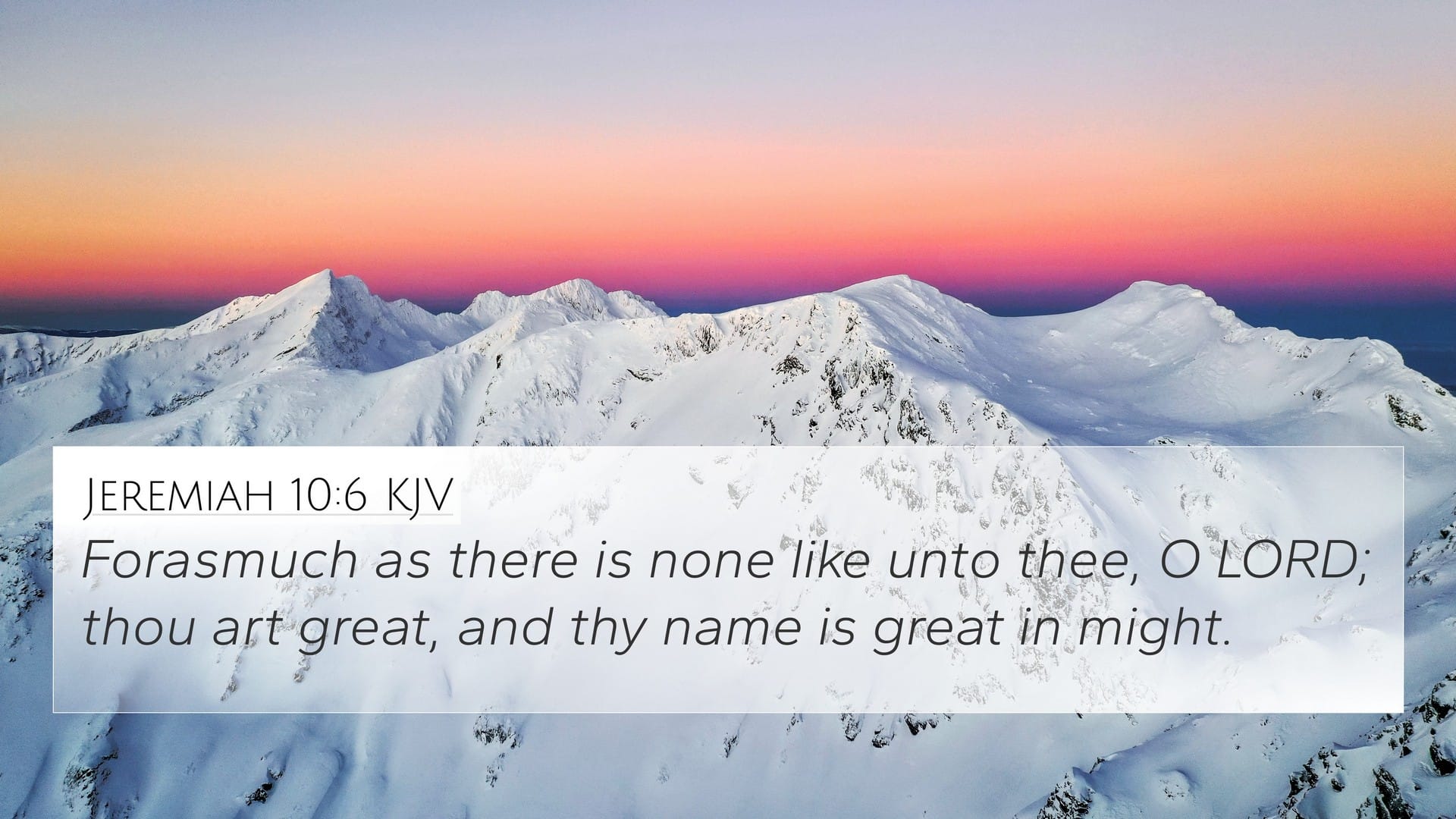
3. Theological Themes
a. Incomparability of God
- A central theme in both Jeremianic and broader biblical theology.
- God is not one among many gods, but the only true and living God (cf. Isa. 40:18–25).
- This directly challenges polytheism, especially the idolatrous practices in Judah and surrounding nations.
b. God’s Greatness
- Jeremiah emphasizes God's sovereignty over creation, nations, and history.
- This greatness is not abstract; it is demonstrated in acts of salvation and judgment (cf. Exodus, the prophets, and the exile itself).
c. Power in the Name
- In Hebrew thought, a name represents presence, identity, and action.
- God's name being “full of power” indicates that when God acts, He does so with divine authority and effectiveness (cf. Prov. 18:10 – “The name of the LORD is a strong tower”).
4. Canonical Connections
- Exodus 15:11: “Who is like you among the gods, O LORD?”
- Deuteronomy 4:35: “The LORD is God; there is no other besides him.”
- Isaiah 45:5: “I am the LORD, and there is no other; besides Me there is no God.”
These verses reinforce a monotheistic creed, central to Jewish faith and later affirmed in Christian theology (1 Cor. 8:6).
5. Christological Implications
From a New Testament lens, we can understand Jeremiah 10:6 in light of:
- Philippians 2:9-11: “God gave Him [Jesus] the name that is above every name…”
- John 17:6: Jesus reveals the Father’s name — the character and power of God made visible in the Son.
This verse can be read typologically, anticipating the revelation of God's name and power through Jesus Christ, who shares the divine attributes.
6. Application for us Christians
- Worship: This verse invites us as Christians to praise God's uniqueness and power, especially in a world that often idolizes human achievement or material success.
- Trust: When life seems dominated by worldly "powers," Jeremiah calls us to remember the true source of power — the Lord alone.
- Holiness: Just as God is unique and unmatched, His people are called to be set apart, trusting in Him rather than lifeless idols (modern or ancient).
